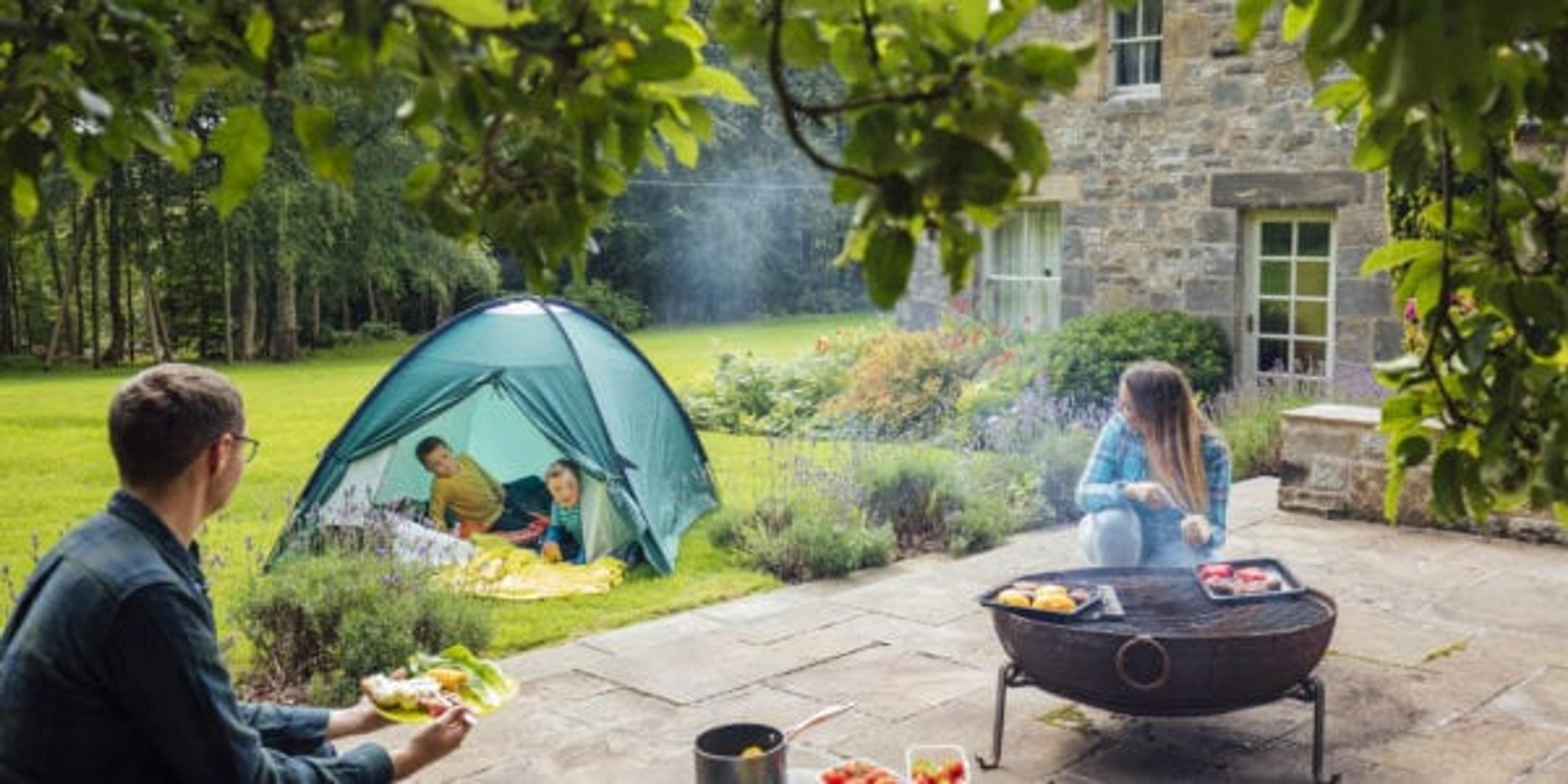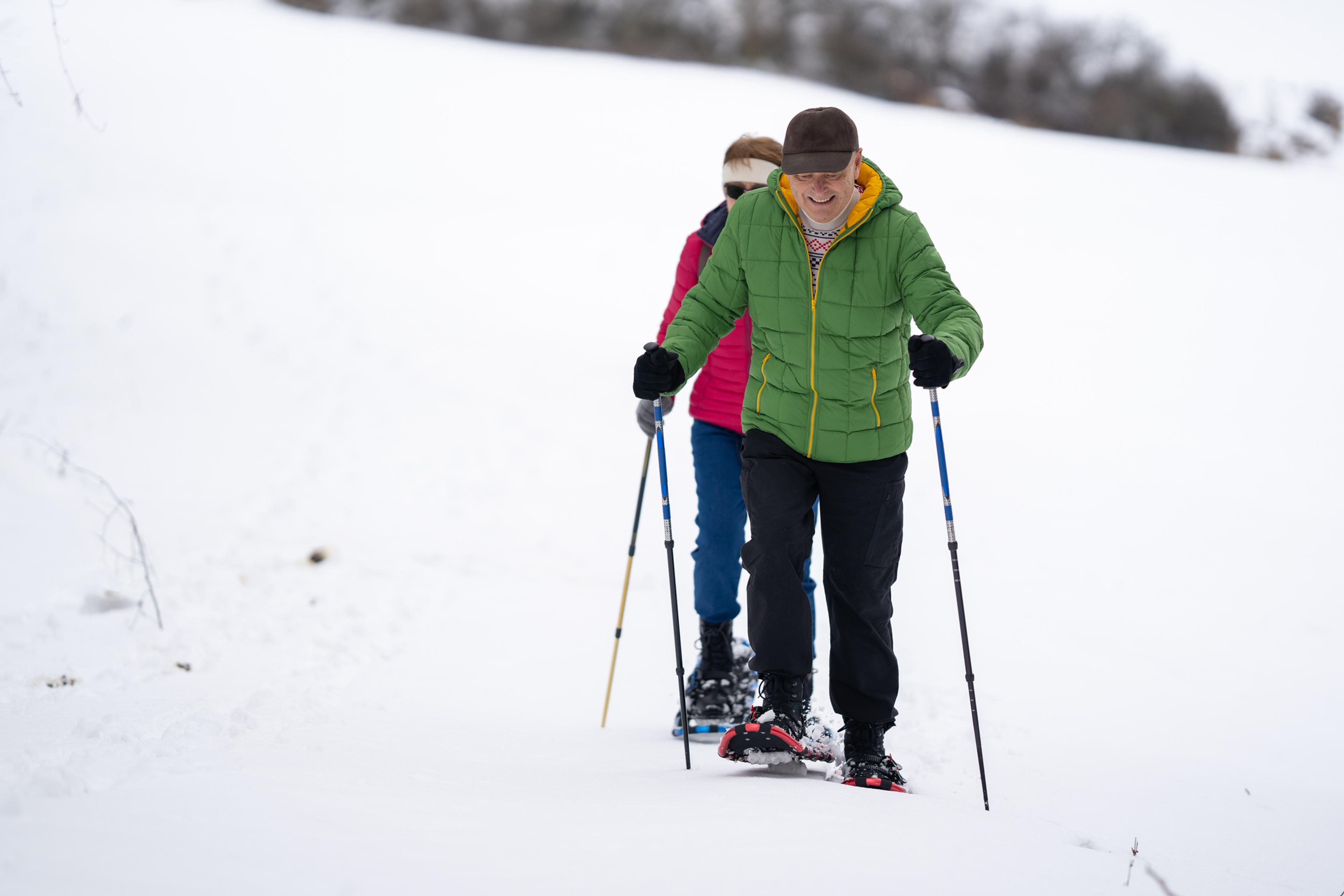Why Backyard Campouts Should Be on Your List This Summer
Shandra Martinez
| 3 min read

Camping is a summer rite of passage for many families. Whether the trip centers around a tent and sleeping bags, an RV or pop-up camper, days filled with campfires, s’mores and walks in the woods become memories that stay with children for years. But you don’t actually have to leave your own yard to enjoy this. Backyard campouts should be on your summer fun list this year.
There are a lot of different reasons why camping in your own yard might make sense. If you’re just getting into camping, it’s a great way to give your tents, pop-ups or even your motor home a trial run. You can practice setting everything up, and it will give you a real idea of what you’ll need to pack. Even for seasoned campers though, backyard trips are a good staycation idea. The campout theme even works well for kids’ summer sleepovers.
No matter where you camp, the act itself has lots of physical and mental health benefits, according to the National Park Service. Camping is often a tradition passed down by parents and grandparents. It teaches children a love for the outdoors, and how to respect their environment. Exercise is also a big ingredient in any campout, typically taking the place of screen time for kids and teens. In this way, camping is a bit of a digital detox.
With a little bit of planning, backyard campouts can be a fun adventure. Here are some things you might need:
Campfire. If you don’t have a bonfire spot in your backyard, consider getting a portable fire pit that comes with a cover and a grate for cooking. They are easy to use, and safe with parental supervision. If you already have a fire ring in your backyard, stock it with firewood, a pile of little branches and bark, and some dryer lint or crumpled paper to help get it started.
Tents or campers. Teaching kids to set up a tent is a fun activity. When you’re putting poles together and tying down rain fly corners, lots of hands make the work light. If you’re using a tent – or many small tents – or a pop-up or RV, have the children set up their own sleeping areas. They can bring sleeping bags, blankets or pillows from their own beds to make a cozy nest. Stuffed animals are welcome, too. If you are tent-camping and want a little luxury, blow up some air beds or use pool rafts to give your campers a little extra cushion.
Outside games. Pick your favorite lawn games or outside toys and make sure they’re available. Beach balls, soccer balls, badminton rackets and birdies, frisbees, cornhole boards and Nerf guns can mean hours of fun. Sidewalk chalk can be soaked in a bowl of water to create vibrant, thick-lined drawings by young artists.
Easy snacks and meals. No elaborate food is needed for backyard campouts. Meals that are easy to grill or cook over an open fire include staples like hot dogs, hamburgers, boneless chicken or even chunks of extra-firm tofu. Fresh veggies can be grilled in aluminum foil packets. Keep bottles of water, juice or small cans of soda in a cooler with ice. Fresh fruit can be set out for grab-and-go snacks. Don’t forget ingredients for s’mores.
A sweet goodnight. End each night with some stories around the campfire, a sing-along, or just some old-fashioned stargazing.
Related:
Photo credit: Getty Images





